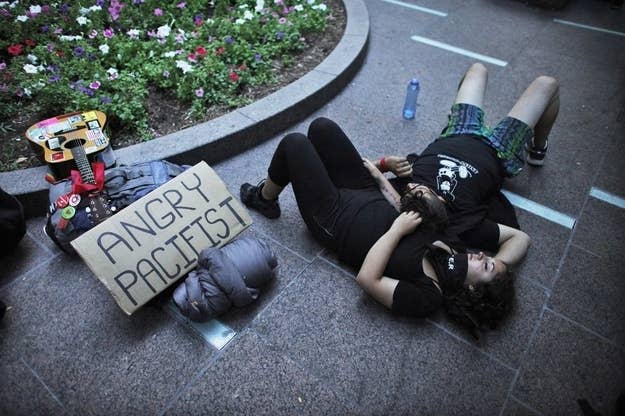
A longtime New York occupier blames the movement's inability to hold on to top anarchist talent for its slow fizzling out over the last few months in an article on his website today.
Chris Longenecker, an anarchist and member of Occupy Wall Street's Direct Action working group, argues that Occupy failed as a radical anarchist movement because the best people left or were forced out.
While Occupy tends to operate on core anarchist structures and principles, and many of the initial organizers of OWS were indeed self-identified anarchists, the movement is losing its most experienced and radical elements at a rapid pace and many Occupy encampments and assemblies never had an experienced anarchist core to begin with.
These factors have led to a situation where many newly-identified, inexperienced anarchists, as well as others who do not identify as such, are using the tools of anarchy, such as consensus, horizontality and direct action, with no foundation for their application, or mentors to help them learn. The Occupy movement must recognize how it is marginalizing one of its most valuable resources and reverse this talent drain if it is to survive as a radical movement opposed to the state and capitalism, and in support of community self-determination and liberation.
Longenecker notes that, like in more mainstream organizations, female or gay organizers had a difficult time breaking through, and many left.
Patriarchy and white supremacy reared its head constantly, as white male organizers were consistently given more credibility than female organizers or organizers of color. As a result, many of our most experienced queer, female-identified and organizers of color dropped out in the first few months of Occupy Wall Street and a trickling loss of talent continues to this day.
The Occupy movement, which started with a bang last September and enjoyed a brief heyday during that fall, struggled to regain its footing after most occupations were evicted from their camping grounds at the end of 2011. Most arguments for its failure to revive have centered around perceived co-option by more establishment groups (or, seen from a different perspective, a failure to be co-opted by the progressive establishment) or around simple disorganization.
